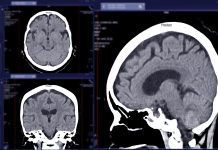According to the World Health Organization (WHO), dementia is the third leading cause of mortality in Europe and the seventh globally, with a societal cost in Europe estimated to be €392bn in 2019. By 2025, 9.1 million people will be living with dementia in the European Union, rising to 14.3 million in 2050. We discuss dementia care provision with Alzheimer’s Europe
Where do current gaps exist in the provision of care and support services for people with dementia?
Alzheimer Europe examined this issue in its ‘European Dementia Monitor 2023’ report, which provides a benchmark of national dementia policies across ten areas and compares European countries’ responses to dementia.
The Monitor found that while a number of countries were able to improve the situation of people with dementia and their carers in recent years, progress was not even across all European regions, with a clear East/ West divide in Europe. Generally, most of the Western and Northern European countries scored significantly higher than Eastern European countries.
Specifically on health and care services, there are recurring issues, with people with dementia and their carers often experiencing either insufficient access to services and/or services which are unaffordable.
Additionally, in 2021, the World Health Organization (WHO) published a Global Status report on the WHO Global Action Plan on the Public Health Response to Dementia 2017-2025, which demonstrated that while some progress was being made in relation to making dementia a public health priority, there remained many gaps across the seven themes of the report, with most targets and goals set to be missed.
What would you say are the priorities for developing best practices and early intervention for Alzheimer’s disease?
As a rule, the Dementia Monitor 2023 found that countries with national dementia strategies scored better than those without. In the first instance, countries should seek to develop and implement fully funded national dementia strategies that coordinate efforts across health, research, social policy, and support for informal carers.
The most recent Lancet Commission on dementia, published in July this year, showed that as many as 45% of dementia cases may be preventable, with 14 risk factors across the life course identified. Many of these risk factors (e.g. smoking and unhealthy diets) are associated with other conditions; therefore, public health bodies should incorporate dementia into their prevention and risk reduction strategies. In some countries (such as Norway, Scotland and Switzerland), we are beginning to see ‘brain health’ approaches, which focus on raising awareness and interventions which can reduce the risk of developing dementia and other conditions later in life.
Where a person does experience cognitive difficulties, it is essential that people are able to access a timely and accurate diagnosis of their condition – Alzheimer Europe’s European Carers’ Report in 2018 found that the experience of diagnosis was often protracted and difficult for families with carers reporting an average of 2.1 years between problems being noticed and getting a diagnosis. Furthermore, people with dementia and carers people should receive adequate post-diagnostic support following their diagnosis to help them come to terms with the diagnosis, access support, services and treatments and plan for the future.
How important is a more holistic approach among relevant stakeholders to improve the experience of people with dementia and their carers?
A broad range of stakeholders should be involved in improving the lives of people with dementia, including decision-makers, clinicians, social care professionals, civil society organizations, researchers, industry partners, and people with lived experience of the condition. Successful development and implementation of policies, services, and research on dementia require the involvement of all these key actors.
As such, Alzheimer Europe believes that there must be greater alignment between policies and programmes from the WHO level through to the delivery of services for people with dementia, their families, and their carers. The WHO’s Global Action provides a useful framework of overarching aims and objectives that governments should work towards to address dementia. However, countries are at different stages of implementation, usually reflecting the specific context of their health and social care systems.
As such, we believe that not only should dementia be prioritized in the EU’s policy work and funding programmes, but governments must also proactively use the available funding (e.g., Cohesion Funds) to reform their systems to improve the lives of people with dementia.
Where should dementia-related research priorities and policies focus in the future?
Throughout 2024, Alzheimer Europe has campaigned on prioritizing dementia in the context of the European Parliament elections and the new term of the European Commission. The campaign has three distinct elements:
- The Helsinki Manifesto – An outline of the current situation regarding dementia across Europe, detailing specific demands for the European Commission and national governments.
- A public Call to Action – This call demands that European decision-makers prioritize dementia as a policy issue and implement the actions of the Helsinki Manifesto. Members of the public are actively encouraged to sign the call.
- The Dementia Pledge 2024 – A commitment that candidates standing for the European Parliament elections were invited to sign, pledging to prioritize dementia in the areas of health, research, disability policy, and informal carers.
The Helsinki Manifesto is divided into the following policy areas:
- Health
- Research
- Disability and social rights
- Support for informal carers
Under each policy area, a brief rationale for action is outlined, followed by a number of specific demands for European and national decision-makers. Examples of the demands include:
- Invest in improvements to support timely diagnosis, including access to imaging, biomarker testing and new treatment options;
- An increase in the funding allocated for dementia research which is proportionate to its societal cost, bringing the total funding to at least the level of other non-communicable diseases;
- The prioritization of dementia in future health programmes with dedicated funding for projects and actions in line with other non-communicable diseases (e.g. cancer); and
- The development and implementation of a European Dementia Action Plan to coordinate efforts and programmes across the domains of health, research and social affairs.
Alzheimer Europe’s campaign will continue until the end of the year and will now focus on achieving the demands in the Helsinki Manifesto.








